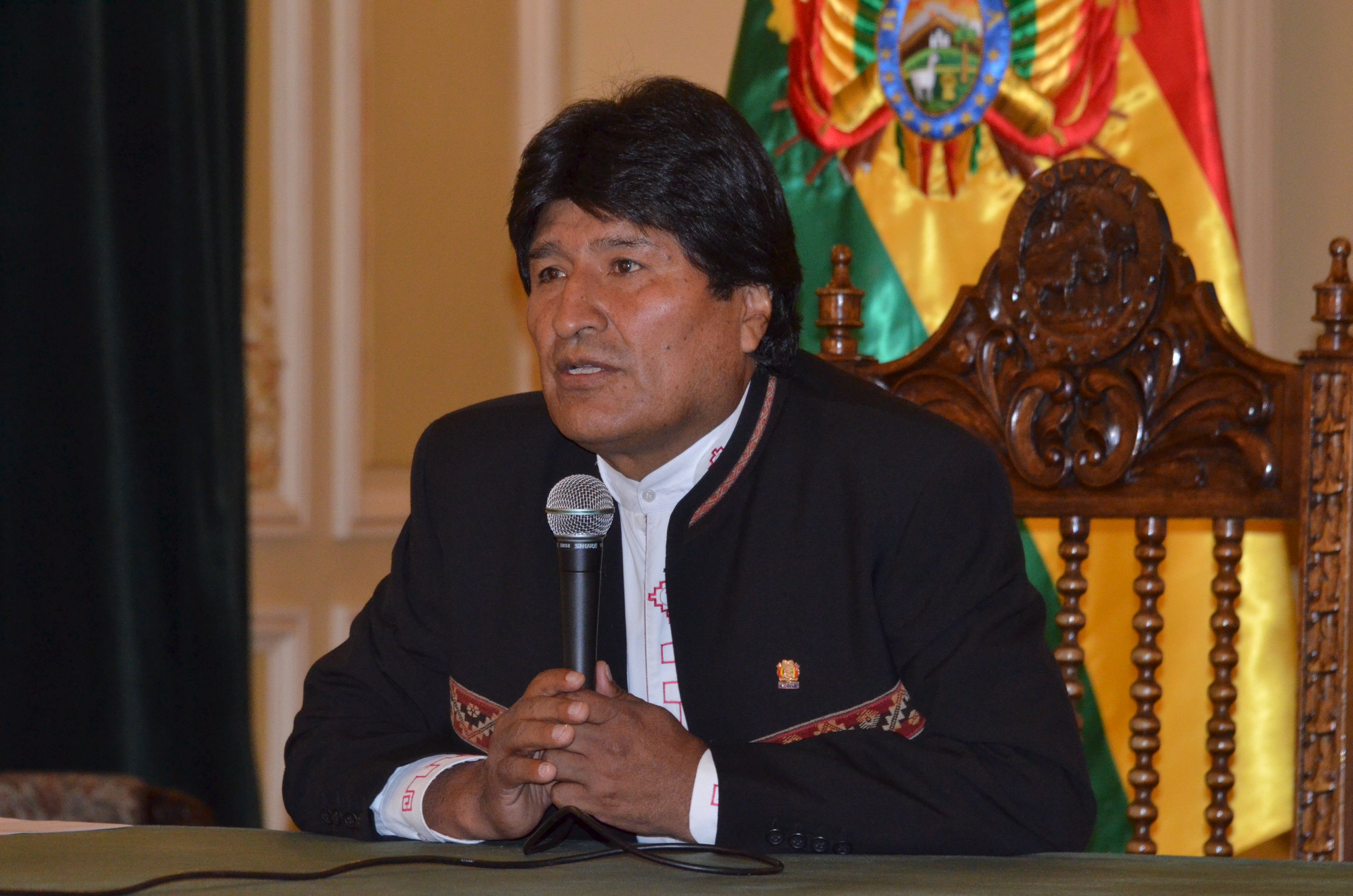
For Bolivia's Evo Morales, elections have been moments of triumph. Since he emerged from the rural labour movement to win the presidency in late 2005, the fiery political maverick has won three straight contests to become his nation's longest serving president.
So it came as a blow last week when Bolivians narrowly rejected a proposal to change their constitution to allow Morales to run for a fourth term and potentially stay in office until 2025. It seems that even one of Latin America's most celebrated autocrats has fallen prey to his own appetite for power and the perils of mortgaging a nation to China's expanding global ambitions.
Although Bolivia is small and poor, Morales, the country's first indigenous president, has played an emblematic role in the now fading "pink tide" of Latin American countries governed by leftists. Yes, the charismatic populist could intimidate opponents and rail at imperialists with the rest of the Bolivarian bullies, but he marshaled his raw-materials bonanza more sensibly than spendthrift counterparts such as Argentina's Cristina Fernandez de Kirchner or the late Venezuelan strongman Hugo Chavez.
Such a record helped cast Morales as a "good autocrat," in the words of journalist Andres Oppenheimer, and that myth, along with generous social spending, played well on the Bolivian stump. "There is just one Fidel, one Mandela, one Gandhi... and one Evo," his foreign minister, David Choquehuanca, recently told El País.
But apparently voters have now decided that Morales is dispensable, and it's hard not to imagine how a succession of scandals -- from alleged embezzlement at a government-financed indigenous development fund to a suspicious arson attack on a rival mayor's offices that left six dead -- helped set the stage for his defeat.
Perhaps the most damaging of the controversies centers on the multimillion-dollar deals the government signed with a Chinese contractor that hired Morales's onetime girlfriend for its Bolivian operations. The engineering firm apparently landed about 60 per cent of its more than $500 million in Bolivian contracts after hiring her -- the sort of track record that fuels speculation about influence trafficking. Morales has denied any wrongdoing, but the swirl of allegations underscores the frailties of Latin American democracy and the hazards of doing business with an ambitious international partner better known for big investments than due diligence.
There's a reason Latin America has fallen hard for China. At a time when global growth is slowing, foreign capital from traditional Western lenders is scarce and generally comes with vexing strings attached. Not so with China, which has become known for lending generously, quickly and with few questions asked. "The running joke is that if a Chinese loan is signed in the morning, the shovels will be in the truck by after lunch," said Boston University's Kevin Gallagher, a scholar of China-Latin America relations.
Bolivia was not on the itineraries of the Chinese premiers and presidents who made 31 visits to the region from 2001 to 2015. But Morales flew to China a few times and has farmed out several contracts to Chinese companies. China is also Bolivia's biggest creditor. Bolivia had $1.6 billion in loans from two state banks in China as of 2015, according to the China-Latin America Finance Database.
It's not clear how good a deal this has been for Bolivians. Several of China's Bolivia projects were awarded by no-bid contracts (including six of the seven signed with the firm that hired Morales's ex-girlfriend). Various China-led projects have also been dogged by delays, technical difficulty and labor unrest, according to the US Army War College's Evan Ellis, an expert on China in Latin America. Of course, none of that might have troubled Bolivians while the economy was roaring and jobs were plenty. But now growth is slowing, and while Bolivians are not yet tightening their belts, they no longer seem willing to look the other way when authorities throw public money into apparently dicey ventures.
The scandal involving Morales's former girlfriend may hold lessons for both sides. Chinese investors are beginning to understand that questionable projects are not just bad form but also bad business. "Our research shows that when host countries complain, the Chinese actually comply, sometimes better than the competition," Gallagher said.
As the scramble for Chinese money continues, the challenge for Latin Americans is to hold their own officials to account -- and to standards their foreign sponsors may not always share. Don't expect a Chinese manager to blow the whistle on shady deals or raise a fuss over corrupt local officials. "The onus for that kind of due diligence is going to have to come from the client country," Gallagher said. Bolivians have taken note. - Bloomberg View